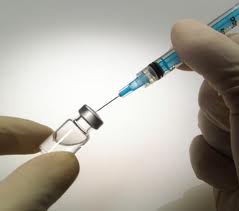Immune responses to infections and vaccinations have shown females to have a significantly more robust response. To better understand these differences between the sexes this study of 53 women and 34 men used a systems immunology approach and a seasonal influenza vaccine. The study identified a cluster of genes involved in lipid metabolism that were modulated by testosterone. Following vaccination they showed a higher antibody-neutralizing response in females. The study was also able to demonstrate that males with the highest testosterone levels and expression of related gene signatures exhibited the lowest antibody responses to the influenza vaccination. Thus identifying a strong association between androgens and genes involved in lipid metabolism, suggesting these are the differences in immune responses between males and females.












